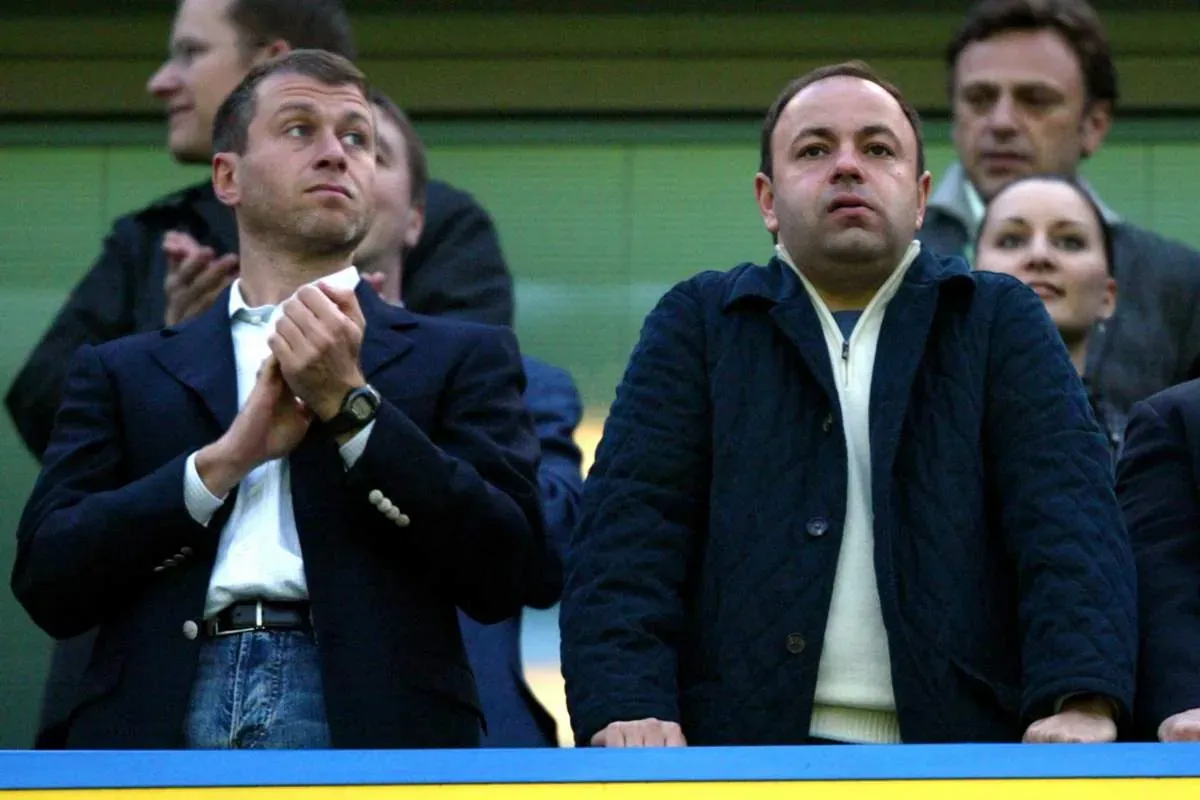In a case that could set a precedent for oligarchs, Eugene Shvidler alleges "oppressive treatmeAnt."
Longtime Roman Abramovich associate Eugene Shvidler has accused the UK government of "oppressive treatment" as he files a judicial challenge to the sanctions put in place as a result of Russia's invasion of Ukraine.
Lawyers for Shvidler, who is reputedly worth £1.3 billion, are attempting to have his designation for sanctions declared invalid and quashed as well as claiming reimbursement of his costs in a high court case that is being keenly watched by oligarchs looking to free themselves from sanctions.
If he is successful, the government may be required to release his assets, including two confiscated private jets.
The businessman who was born in the USSR is contesting the Foreign Office's decision to penalise him, arguing that he has been the victim of discrimination and questioning if the "hardship" he is experiencing as a result is reasonable.
According to his attorneys, the penalties violate his rights as guaranteed by the European Convention on Human Rights.
Shvidler is subject to sanctions as a result of his relationship with Abramovich, who the government claims benefits from backing the Kremlin, and his prior position as a non-executive director at the steel company Evraz, which the government claims is important to Russia's strategic interests.
The effect of the sanctions, according to Shvidler's lawyers, was to "destroy his ability to deal with his assets and conduct his business, to disrupt his life and the lives of his family, to rob employees of their livelihoods, and to shatter his reputation," according to an argument made before the court on Thursday.
His kids were ejected from the UK schools they were attending as a result. They are currently residing in the US, Mr. Justice Garnham was informed.
Speaking on Shvidler's behalf, Lord Anderson KC also drew attention to "colourful, untruthful, and offensive" remarks made by government officials, such as the former foreign secretary Liz Truss and the then-transport secretary Grant Shapps, who claimed that those subject to sanctions were "complicit in the murder of innocent civilians."
Despite the fact that Shvidler had no influence on Russian policy or Vladimir Putin, whom he hadn't met since the 2007 burial for former Russian president Boris Yeltsin, he said that Shvidler had been anointed the "poster boy" for sanctions. Shvidler's punishment by the government was characterised by Anderson as "you never know, it might do some good."
Shvidler, unlike the bulk of other people under sanctions, is a British citizen. According to Anderson, this indicates that the restrictions were unusually onerous and applied globally. The crossbench peer and KC said in court that Shvidler was receiving "oppressive treatment" from the British government. KC recently conducted a review of monitoring legislation for the Home Office.
The government's ability to impose sanctions was so broad, he claimed, that it should have given them more thought before implementation. This made the proportionality of penalties all the more crucial.
Shvidler, 59, claimed he had been subjected to discrimination because of his position at Evraz. He appeared live via videolink from his home in the US, where he also holds citizenship.
The Russian government, according to the UK government, is very interested in the steel-producing company Evraz. The justification for imposing sanctions on anyone who worked for or owned stock in the corporation is based in large part on the reasoning.
However, according to Shvidler's attorneys, neither other Evraz executives nor those at large, profitable oil and gas firms with operations in Russia, including BP and Shell, had faced sanctions.
Although the two were longtime business partners, Shvidler downplayed his connections to Abramovich, claiming that the Foreign Office erred in assuming that he benefited financially from the alliance.
Two weeks prior to Shvidler, the Foreign Office imposed sanctions on Abramovich due to his suspected close ties to the Kremlin. He hasn't disputed the penalties.
Speaking on behalf of the foreign secretary, Sir James Eadie KC informed the court that the Foreign Office had reviewed the proportionality of its sanctions in a "detailed and diligent" manner.
It was "difficult to overstate" the significance of stopping Russian atrocities through sanctions, which have been imposed on 1,600 people, he said, adding that Shvidler was a part of a "web of influence" that could assist put pressure on Putin. This web of influence included Abramovich.
Although he admitted that Shvidler had voiced his opposition to the war in public, he claimed that the sanctions would encourage him to lobby against it on a personal level.
Shvidler and others would be deterred from working in or making investments in industries that would be advantageous to Russia strategically and economically, according to the government lawyers.
In response to the claim of discrimination, the government claimed that sanctions were also imposed on Evraz directors who were also connected to Abramovich and were not just of Russian origin.
Garnham stated that he planned to provide a decision within a few weeks.





%20(1).webp)
No comments:
Post a Comment